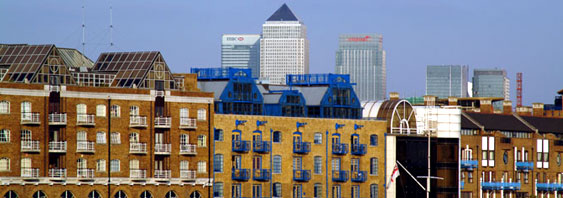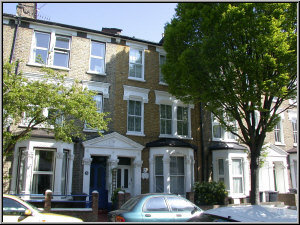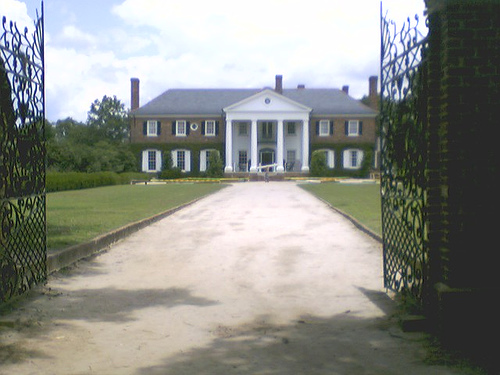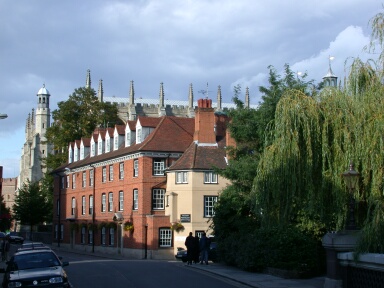116: How to make money in property…
02-09-2007
PropertyInvesting.net Team
The only reason why you visited this website is because you are keen on making money – by investing in property. Otherwise you’ve probably got here by mistake.
So how do investors make money in property?
By adding value.
How do you add value?
By purchasing property at below true market value then add value to the property. You then have the option to release the capital then repeat the process.
How do you purchase property at significantly below market value?
You need to have a network of contacts, agents and fellow investors working to feed your evaluation funnel providing many below market value opportunities for you to evaluate quickly and choose to invest in or not. The bigger the feed, the more likely you are to get the best deal. You’ll also need to work hard to pass on any good investment property you do not want to buy yourself to your investment colleagues ad contacts. They will  then return the favour and forward you the best investment properties that fit your criteria.
then return the favour and forward you the best investment properties that fit your criteria.
All investors have different criteria – some look for shops, other flats, other houses, some large, some small, some in a certain geographical area, some in very definite market segment, some requiring renovation, some new build, some have absolutely no preference as long as the property was say 30% below true market value.
If you come across an excellent shop – you’ll need to contact the colleague investor who is interested in shops. If you come across the 1 bedroomed Victorian flat in
So just how do you get such a network of contacts?
There are a number of ways:
· Meeting investors and agents at property seminars and conferences
· Joining property investment clubs
· Visiting estate agents
· Visiting auctions
· Membership of business clubs
· Membership of clubs run by websites
The analysis of hot-spot, trends and market segments can help provide a safer foundation for investment, but much of the value in property investment is delivered when a property is first purchased at considerable below its true market value. If property can then up upgraded at low cost quickly, then refinanced to release capital – this process can be repeated rapidly to develop a large value creating portfolio of investment property. This can even be done if price drop – in fact – the best investors will make very high returns when prices drop because they will purchase property form distressed sellers at an even greater discount, upgrade – and if their timing is good, wait until the market turns and sell or re-finance.
 If you cannot see that putting capital into a property does not immediately deliver you value – e.g. it is purchased at true market value – then you should not purchase it.
If you cannot see that putting capital into a property does not immediately deliver you value – e.g. it is purchased at true market value – then you should not purchase it.
If you cannot see a simple way of adding value to the property quickly after purchase – it should not be purchases.
The best investors aim to purchase property at 15-25% below market value from the onset, and see a quick way of adding at least another 15-25% within a few months, hopefully at relatively low cost. An example is purchase of a repossession flat in  £132,250. You then refinance to 85% gearing again – and pull out £27,400. After renovation costs of £2000 and fees, you have made £25,000. This is possible in a three month period. If you have three such properties on the go at any one time – and deliver 12 such properties in a year – you’ll make a before tax value increase of £300,000 even without house prices rising.
£132,250. You then refinance to 85% gearing again – and pull out £27,400. After renovation costs of £2000 and fees, you have made £25,000. This is possible in a three month period. If you have three such properties on the go at any one time – and deliver 12 such properties in a year – you’ll make a before tax value increase of £300,000 even without house prices rising.
Remember, if you have say ten flats worth a total of £2,000,000 and you have geared to 85% - hence you have a net equity of £300,000 invested – and property prices rise 10% in a year – valuing your property portfolio at £2,200,000 – this is a 66.7% return on equity. Although 10% seems like a lot, it is actually well below what property prices have risen on average over the last ten years (over the last 100 years, property prices have risen by an average of 8% in the
You successfully purchase property at significantly below market value by adopting a more conventional approach:
· Scan 1000 properties in a city or county using criteria such as number of bedrooms, type of property – scan the lowest price properties up in price until you spot a bargain
· Call the agent and view of the property as soon as you can
· Off a further 12% below the already low price you have identified
· If they do not accept (or in any case), repeat the process on the next ten properties – someone will accept your offer – this is a way of flushing out the “motivated seller”
Make sure you always make it crystal clear to the estate agent when you speak to them over the phone that you are an experienced investor who is only interested in purchase of property at well below normal market  value – preferably from motivated and/or distressed sellers. You’ll be amaised what comes to their attention – they will treat you in a completely different light. They will take you serious if you have cash and can move fast – to get a sale of an awkward property quickly at low risk.
value – preferably from motivated and/or distressed sellers. You’ll be amaised what comes to their attention – they will treat you in a completely different light. They will take you serious if you have cash and can move fast – to get a sale of an awkward property quickly at low risk.
Always put offers in writing – in a fax or email with a qualifier “subject to contract”. Agents and vendors will always take you more seriously if you put an offer in writing.
Remember – after you’ve put your offer in – you normally have at least two months before completion – if prices are going up – you might make another few percent in value during this period.
Also, it’s best not to get too analytical – over analysis can simply be an excuse for not making a decision (e.g. putting in an offer) – so do just enough analysis to convince yourself there is a very low risk of you not purchasing the property at considerably below normal market value. Try and buy property that superficially looks bad, but you know a good "lick of paint" and some simple upgrades will transform the appearance and hence add value at low cost.
For future development potential, if you purchase a house with an unconverted loft, unconverted basement, space for a low cost though large extension or space for a garage – then you’ll have some future value  potential to add to your portfolio. If you can find a house with a large side garden, or back garden with access, you might even be able to get planning permission to build another house in the garden. Such a plot in
potential to add to your portfolio. If you can find a house with a large side garden, or back garden with access, you might even be able to get planning permission to build another house in the garden. Such a plot in
So why to most investors avoid new build apartments and houses? It’s pretty simple – they cannot see how to add value immediately the property is purchased, particularly if house price aren’t rising. Its logical that the property developer will take a big margin and leave the purchaser a smaller one. If you get involved in a property club, bulk purchase can bring down the purchase price, but after commissions, tax, fees, stamp duty and club fees, you’ll be hard pressed to see any immediate margin. Then – its almost impossible to add value with renovation – you’ll probably destroy value if you try and upgrade the new build flat or house. Some excepts exist, when you can put very small amounts of money down to secure flats in development where prices are rising rapidly – returns can be high (Bulgaria, Poland and Romania springs to mind though in such countries, you have to be careful you don’t get taken for a ride – you have to find the reputable developers and legal support.

